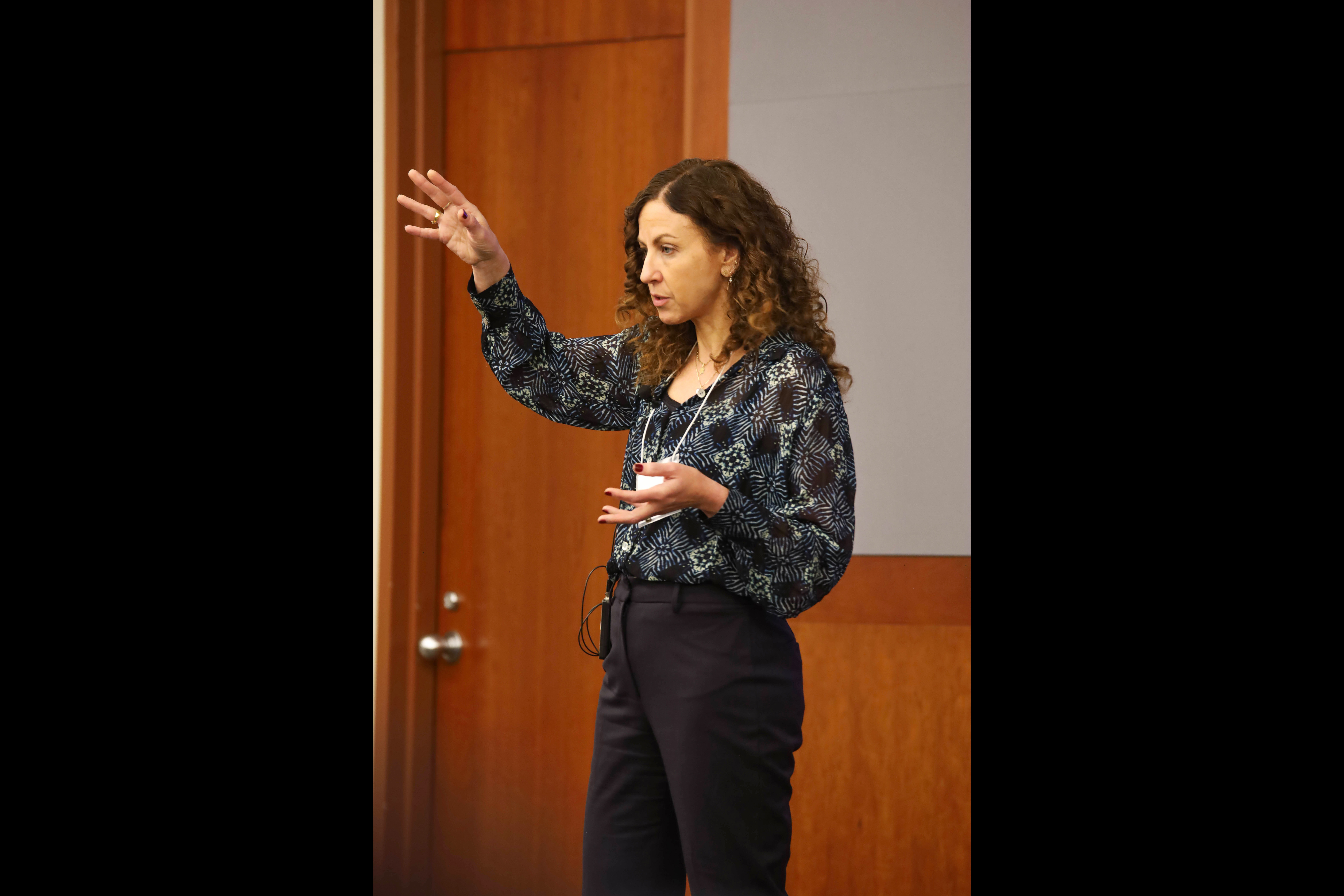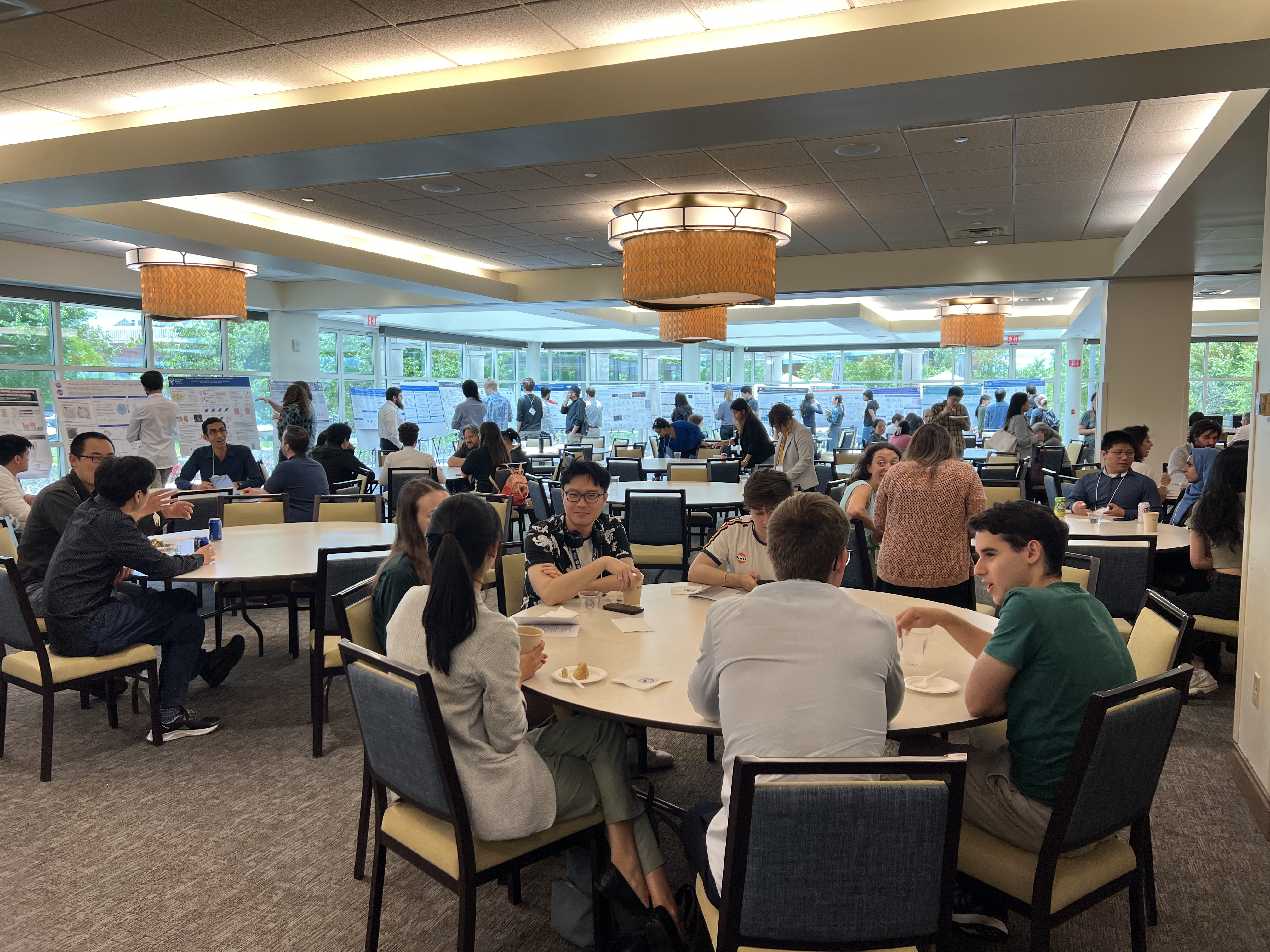In pictures: systems biology unites scientists towards better health




Poster prize winners
Andre Levchenko
Scientists from a kaleidoscope of disciplines gathered June 10th at the University’s West Campus for the annual conference by the Yale Systems Biology Institute: The Future of Systems Biology at Yale and Beyond.
Now over ten years old, the Systems Biology Institute has amassed a sizable community of interdisciplinary scholars with a focus on complex interactions in biological systems and organizational principles that unite living systems.
With over a hundred scholars in attendance, the symposium featured a full day of science talks, including a keynote presentation by Galit Lahav, Novartis Professor of Systems Biology and Chair of the Department of Systems Biology at the Blavatnik Institute at Harvard Medical School. This year the symposium also featured speakers from a growing number of connected labs from across Yale.
Introducing the event, Vice Provost for Research Michael Crair highlighted the importance of the systems biology field in creating new disciplines that are helping to answer important questions about human health.
From its beginnings at West Campus in 2013, today the Systems Biology Institute brings together 11 faculty labs and numerous trainees, with fields ranging from biomedical engineering, molecular, cellular and developmental biology, genetics, microbial pathogenesis and immunobiology.
Characterizing the past, present and future of systems biology, Institute Director Andre Levchenko charted the evolution of systems biology as a collaborative incubator of ideas at Yale.
“Modern biology is fragmented and speaks many different languages,” he explained. “From a history defined by confusion, we are inventing new tools and discovering axes along which important things happen, from which new laws emerge and uncertainty collapses.”
In just a few of the Institute’s recent advances labs have developed a new gene delivery and immune cell engineering technology with the potential to advance cell therapies for cancer and other diseases. Another recent breakthrough found a protein in cells that line the body’s tissues, offering the potential for a new defense against COVID-19.
Citing early scientists like Copernicus, Galileo, and Newton, who were often persecuted for their early ideas, Levchenko, who is the John C. Malone Professor of Biomedical Engineering, sounded a more optimistic note for modern day systems biology.
“The field can be confusing, but through our amazing scientists we have created a space where correlations are being found to challenge our uncertainties about the world,” he said.
“There is nothing more important than systems biology,” echoed keynote speaker Galit Lahav. While she and many of the symposium’s participants are engaged in fundamental (or “basic”) biology, the motivation is on clinical outcomes.
“We know what causes cancer, but less about what causes relapses days, months or years later,” she said. “We are interested to zoom into these cells to understand how they control the different decisions they make.”
Poster prize winners were grad student Maisha Prome and postdoctoral scholar Michael Grome (Isaacs Lab) and postdoctoral researcher Sung Hoon Lee (Levchenko Lab.)